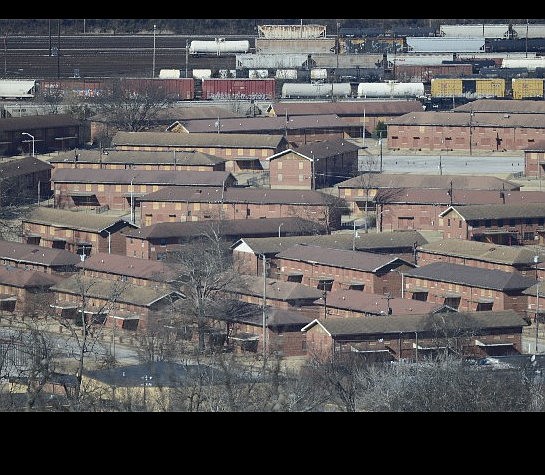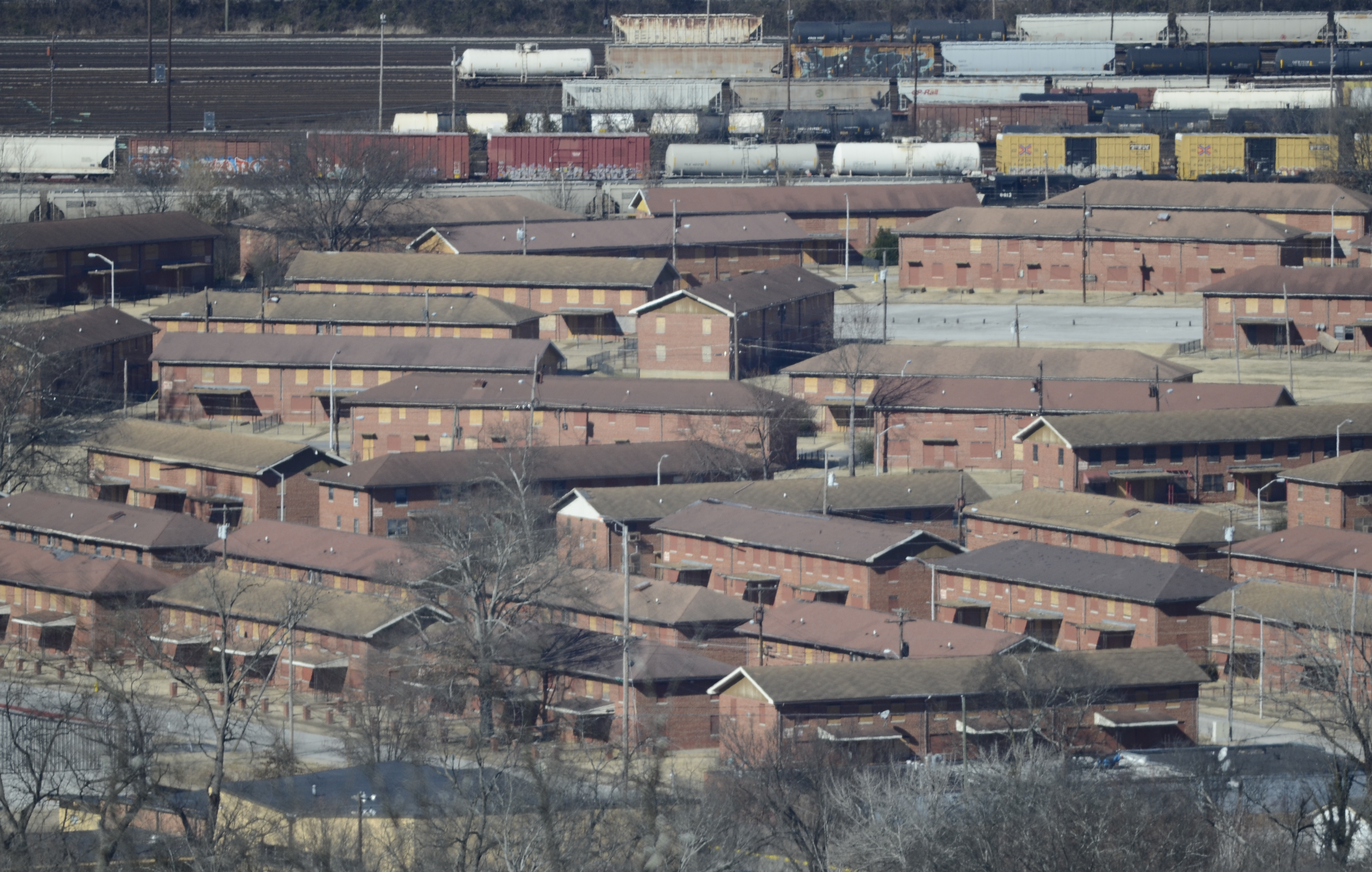Chattanooga Housing Authority takes charge of trying to sell the Harriet Tubman Homes
Thursday, January 30, 2014
Read moreTubman's tangled tale: The story behind CHA's failed attempts to sell the public housing site
The quest to cast off the dilapidated Harriet Tubman Homes took another turn this week, as the Chattanooga Housing Authority resolved to consider "every offer" for the ruins of what was once a 440-unit public housing complex.
Following a Times Free Press story highlighting political delays, a confused vision and repeated inaction that led the agency to ignore millions of dollars in bids for the 36.5-acre public housing site in the past two years, CHA's board voted Tuesday to take over from the agency's executive staff the authority to consider every offer.
But officials did not answer questions posed by reporters or other board members about whether industrial or residential uses would be given higher priority when determining the "highest and most advantageous direct value to the CHA," as directed in the resolution. The agency wants the quickest possible sale, and prefers to do any deal in cash, according to its resolution.
The resolution states that the factors are based on but not limited to "the purchase price, the proportion of cash offered and the timing of the proposed closing date."
At CHA's direction, the property previously was marketed only as a residential complex, until Chattanooga Mayor Andy Berke proposed an industrial use for the site in July 2013.
Board Chairman Eddie Holmes said this week that the housing authority remains divided on whether to push for multifamily housing -- which would fit the agency's mission of providing affordable homes for low-income citizens -- or to look favorably on an offer by Berke to transform the complex into an industrial site. Berke has called for a jobs-generating industry there as a major part of his economic plan during his first term, though many in the East Chattanooga community oppose such a move.
"The [best] use of the property should be that the citizens are going to benefit and it creates opportunity for the community to grow," Holmes said. "That could be housing or industry."
CHA board positions are mayoral appointments. But Holmes, who was appointed by former Mayor Ron Littlefield, said that doesn't mean the city has any say in the board's decisions.
Audio recordings of the meeting reveal that board members weren't sure whether their marching orders were to take the highest bid or look favorably on an industrial or residential proposal. When board member Edna Varner asked if the word "advantageous" meant accepting the highest bid, CHA Executive Director Betsy McCright told her, "not necessarily."
Though CHA is required by the U.S. Department of Housing and Urban Development to accept a minimum of $2.46 million for the site, the board may accept or reject any offers that exceed that amount, especially if it perceives a higher value for a commercial rather than a residential project, McCright said.
"Let's say that the multifamily [offer] came in at $2.9 million, and the commercial [offer] came in at $2.46 million, which satisfies HUD but we have this other offer at half a million dollars more. That's where the board really needs to balance whether the value of going with a commercial proposal is equal to or exceeds the value of half a million more to the agency," McCright said.
Throughout the meeting, CHA's executive staff painted a picture in which the board has far more authority to act than previously stated.
Contrary to previous statements by Holmes that HUD owns the property and exercises significant control over its sale, CHA attorney Larry Cash said Tuesday that CHA actually owns the complex. HUD -- which grants $12 million in federal money annually to CHA -- exercises a so-called "deed of trust," a type of collateral to ensure that CHA complies with its obligations, Cash said.
McCright said during the meeting that "there have been a lot of facts about the Harriet Tubman transaction that are false and unwarranted." When reached by phone, McCright told a reporter to put questions in writing and later in an email didn't clarify what she meant in her previous statement to the board.
Board member Jim Sattler argued that the Tubman resolution changes little. The board has always been open to any offer, regardless of whether it added affordable housing in Chattanooga or served the city's commercial interests.
"It makes everybody in the public know we're looking at other offers, or any other use," Sattler said. "Personally, I think it just clarifies it."
After a failed attempt to sell the property to Chicago-based Lakewood Reality, the board reopened the bidding process through Feb. 14. Berke has indicated that the city is still interested in buying Tubman and converting it for industrial use, if negotiators can "get the numbers to work."
Contact staff writer Joy Lukachick at jlukachick@timesfreepress.com or 423-757-6659.

